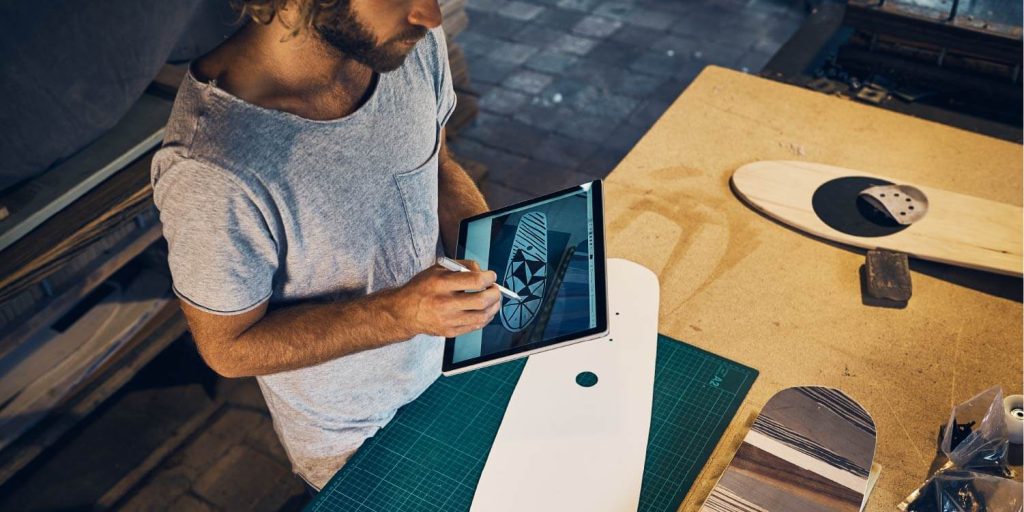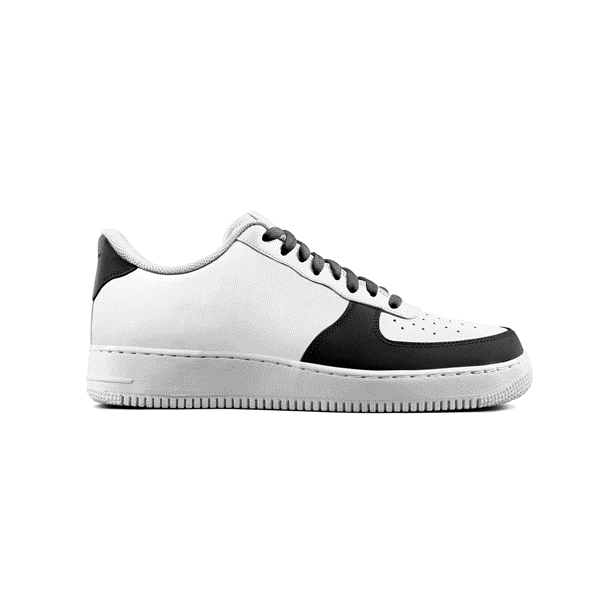Manufacturing Customization 101: Personalization at scale
March 16, 2023Customization offers flexibility and personalization with the low unit costs of mass production – and a possible route to circularity.
Customization is nothing new. Over centuries, goods and products have been custom-created by tradespeople to meet the unique demands and specifications of the customer. However, in the age of mass production, if a customer wanted a personalized product from a brand, they had to go premium. This meant higher prices for the end user and higher costs for the company. However, an increasing number of brands have found a sweet spot between full customization and mass production: manufacturing customization.
All over the world, this is helping customers across many industries get the personalized products they want. But custom manufacturing offers more than this. This new age of customization is also helping brands and manufacturers increase brand loyalty, open up new revenue streams, and influence their environmental impact.
What is manufacturing customization?
Manufacturing has always been a hotbed of technological and operational innovation. From the first production lines to advancements like automation and 3D printing, companies always look to capitalize on emerging technologies. These can increase their competitive advantage or create new revenue streams.
A newer development in this ongoing process is manufacturing customization. It allows companies to offer their customers the chance to tailor products to their own specifications. Perhaps the most famous example is Nike By You (formerly NikeID). This is a service that lets customers personalize the colors and designs of their sneakers.
But Nike isn’t the only name in the game. There are a growing number of brands offering similar services. Examples include fashion brands letting shoppers design the perfect pair of jeans and car manufacturers encouraging buyers to choose the look and finish of their new interior.

How customization is changing manufacturing
These initiatives represent a big change in the way companies think about manufacturing their products. Traditional mass production is based on producing large amounts of identical products. Manufacturers do this by using standardized and repeatable processes, helping ensure consistency while keeping costs to a minimum.
Manufacturing customization turns this approach on its head. Instead, it focuses on designing, engineering, and producing goods based on individual customer specifications. Advances in technology mean that what would once have led to significantly higher costs for both the producer and customer can today be achieved at scale for reasonably low costs.
The Role of Technology in Mass Customization
The manufacturing process has evolved significantly with the advent of new technologies, enabling mass customization to become more feasible and cost-effective. Technologies such as 3D printing, CNC machining, and advanced software platforms allow for the efficient production of customized products. These innovations streamline the creation of custom parts and unique products, reducing the time and cost traditionally associated with customized manufacturing. As a result, brands can offer custom solutions that meet specific customer needs without the premium costs once necessary.
The benefits of customization in manufacturing
The way that customers and businesses view mass production is changing. By integrating customization into their go-to-market strategy, brands can see a number of benefits for their product, their customers, and their business. Here are just some of the benefits of customization in manufacturing:
Enhanced Product Design and Quality Control
Integrating customized manufacturing into production lines not only meets customer demands but also improves product quality. The ability to tailor product design to precise specifications ensures that each component is crafted with attention to detail. This customization process allows for rigorous quality control, as each unique product undergoes checks tailored to its specific design. Compared to traditional manufacturing processes, this approach minimizes defects and enhances overall product reliability, leading to higher customer satisfaction and brand loyalty.
Customization helps brands engage with customers
For many consumers, mass-produced, identical products are now less desirable than they once were. People are instead looking for a more personal touch. They want more of a connection to the things they buy, and personalization is a great way to ensure they get the connection they’re looking for.
Technology has already given companies much more insight into their customers, such as demographics, preferences, activity, and location. But manufacturing customization is taking this to a new level. It allows customers to take part in the product creation process. They do this by choosing design features, add-ons, functionality, and other aspects before production begins. Many of us have had to choose between two similar products, neither of which was quite right for our needs. Customization can make that a thing of the past.
Manufacturing customization is already common. Consumers can now personalize sneakers, car interiors, chocolate bars, headphones, the list goes on. This gives brands and manufacturers a whole new way to engage with their customer base. It also helps build brand loyalty and, ultimately, drives stronger repurchasing behavior.

Customization helps brands drive efficiencies
The past two decades have seen digitalization force businesses all over the world to rethink the way they do business, from how they produce products to the ways they engage with their customers. In the manufacturing sector, there are lots of time-consuming and manual jobs that can be automated, processes that can be streamlined, and ways to provide a better experience for customers.
Customization provides manufacturers with substantially more intelligence about their customers, such as what they like, what they don’t like, and what kind of products they want to buy. This intelligence can help manufacturers streamline their operations to ensure their processes are built to meet consumer demand.
Customization helps brands meet sustainability targets
For businesses, the traditional way of producing products can also seem increasingly at odds with sustainability goals and the shift towards a circular economy. Mass production at scale also means mass overproduction at scale. This leads to substantial wastage through product returns and unsold goods, as well as the associated environmental impacts throughout the entire supply chain.
However, when done right customization puts an end to this overconsumption as goods are only created to meet demand, and not the other way around. The improved inventory management offered by manufacturing customization helps reduce this reliance on producing as many products as possible by more accurately aligning production with demand.
Built on a foundation of high-quality data
Whether it is allowing customers to customize the products they buy, or making sure they have a consistent and seamless personalization experience across all touchpoints, high-quality data is a necessity. Manufacturing is an industry undergoing a seismic change from all angles. Customers’ expectations are evolving, the commercial landscape is increasingly crowded, and governments are demanding more action to reduce the impact the sector has on the world around us.
For brands and manufacturers looking to navigate these new expectations from customers, a solid foundation of product information truth is essential. The inriver platform is the complete software solution for businesses looking to exceed these new demands from customers, letting them provide the customization buying journeys their buyers are looking for. How is customization shaping the future of manufacturing? Read our latest ebook “A new era of opportunity in manufacturing” to find out.
want to see the inriver PIM in action?
Schedule a personalized, guided demo with an inriver expert today to see how the inriver PIM can get more value from your product information.
you may also like…
frequently asked questions
what are the main challenges in implementing mass-customized manufacturing?
Implementing mass customized manufacturing comes with several challenges. One of the primary challenges is the need for advanced technology and flexible manufacturing systems that can handle the complexity of producing individualized products at scale. This often requires significant upfront investment in machinery and software. Additionally, the production process must be highly efficient to ensure that customization does not lead to increased production times or costs. Supply chain management also becomes more complicated, as sourcing materials for a variety of custom specifications can be more difficult than for standard products. Lastly, maintaining consistent quality control across customized products can be challenging, requiring robust quality assurance processes.
how does subtractive manufacturing fit into custom production?
Subtractive manufacturing, a process where material is removed from a solid block to create a finished product, is a vital method in custom production. It allows for precise and detailed customization, making it ideal for industries that require intricate parts, such as aerospace and medical devices. By using subtractive techniques, manufacturers can create highly customized components with tight tolerances and specific material properties. This method complements other customization techniques like 3D printing, providing a diverse toolkit for achieving various levels of cosmetic customization and functional design in the production process.
what industries can benefit most from cosmetic customization?
Cosmetic customization, which focuses on the aesthetic aspects of a finished product, can significantly benefit industries where appearance plays a crucial role in consumer satisfaction and brand differentiation. The fashion and apparel industry, for example, thrives on providing personalized designs and colors that align with individual consumer preferences. Similarly, the automotive industry allows customers to personalize car interiors and exteriors to match their tastes, enhancing their overall ownership experience. Consumer electronics, such as custom-designed headphones or phone cases, also see substantial benefits from cosmetic customization, as it allows brands to cater to unique consumer desires while maintaining mass production efficiency.
Expanding the possibilities of PIM
Product information management software is often seen as a key tool for sales and marketing teams. But as the demands on product information evolve, so too does the scope of what PIM software can offer forward-thinking brands, manufacturers, and retailers. From sourcing and design through to after-sales services and recycling, PIM is the complete solution for the entire product journey.
Johan Boström
Co-Founder & Board Member
Johan Boström is one of the founders of inriver and a senior business leader with two decades of experience leading international technology companies.
read more